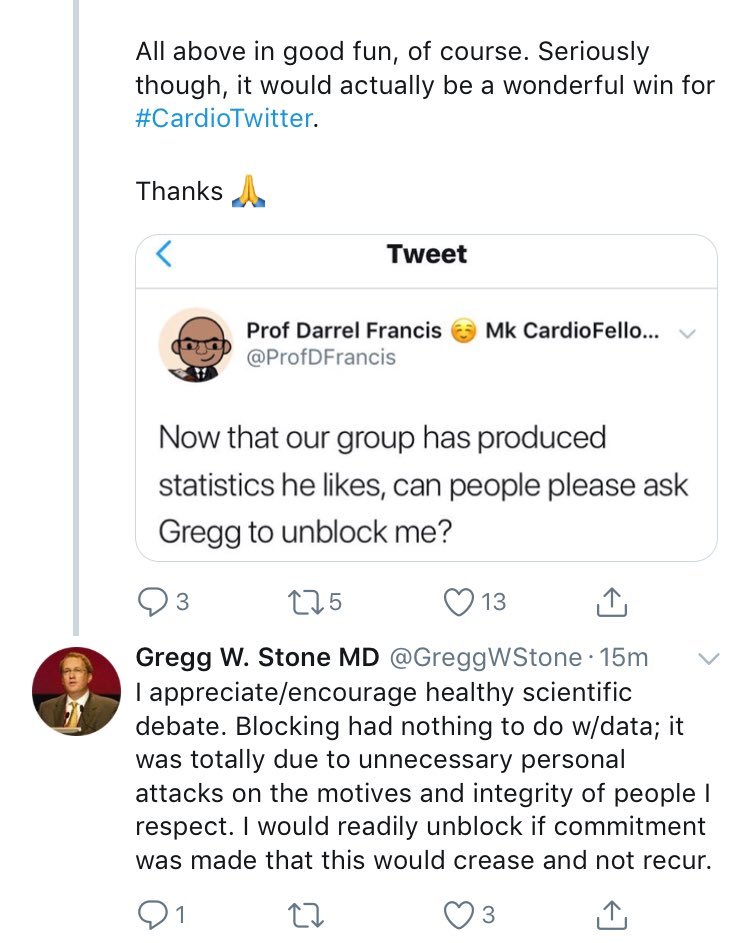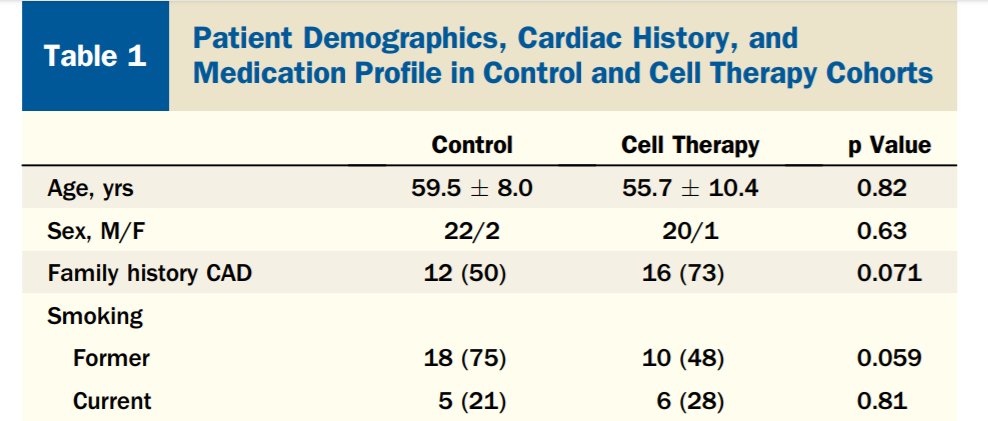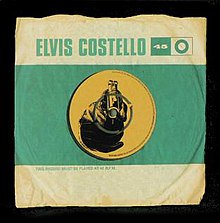Where does scientific integrity come from? What makes me think I can trust papers written by him? I've never heard of him before this tweet, and I have no idea of his background.
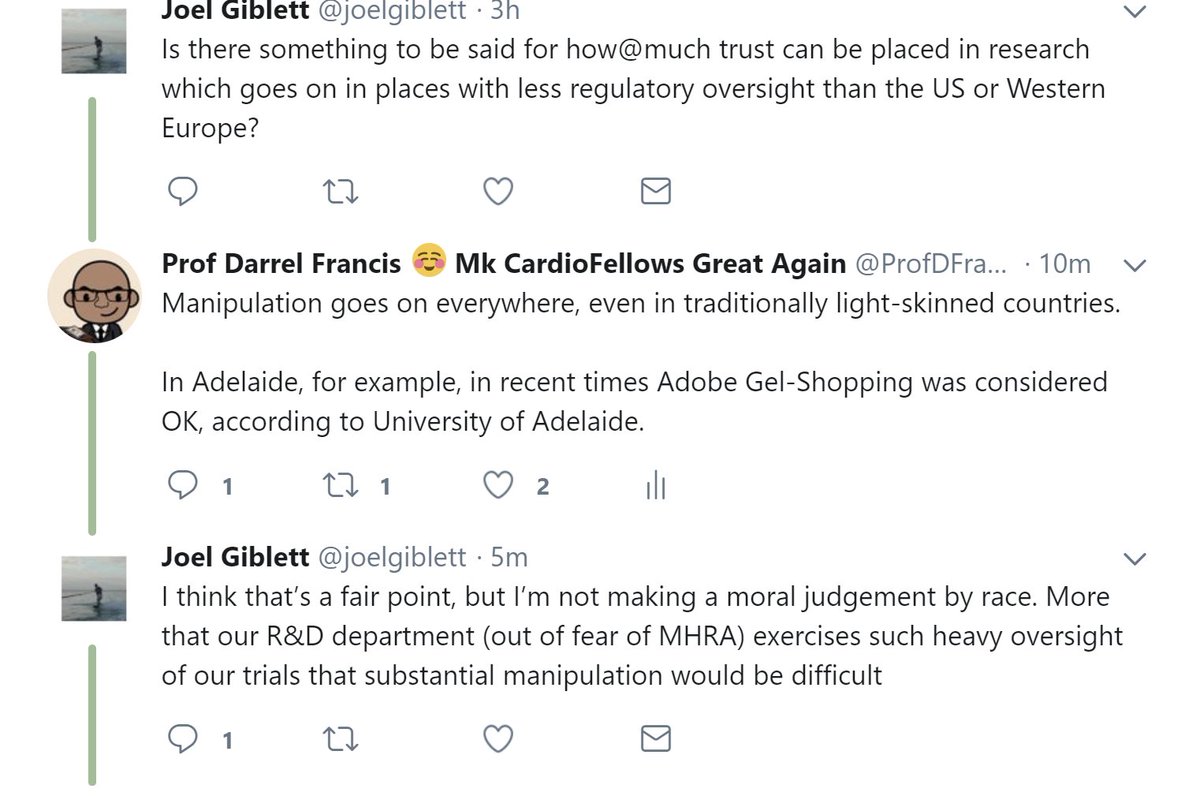
Second, he is scared of R&D and MHRA. This is a good sign that he tries to toe the line, pays his taxes, doesn't park in the disabled spots (unless entitled) and doesn't drop litter.
It is his own personal attitude, those of his colleagues, and the lack of tremendous incentives to fiddle.
Since it is routine clinical data, R&D office don't particularly get involved in the nitty-gritty.
Then I just let him/her loose on the data.
Just 3 hints: "Obviously use the most clinically appropriate and meaningful IQ measurement in each case, and don't count obviously ineligible cases. And don't assume the pre-entered sex is right, sometimes staff get it wrong when in a rush."
In fact our Twitterverse has shown this in the last week here >
Not MHRA. Not R&D office.
I think it is because
(a) I don't _need_ to accumulate rubbish papers. Nobody is forcing me. I hope nobody is forcing Joel.

Their perception:
No positive results -> No papers -> No PhD -> failure
That is a horrible, horrible situation to face.
I wouldn't wish it on anyone.
Not the researcher's fault, but it is a lonely and personally crushing position.
It must be unspeakably horrific.
I encourage them to recognise BS when they see it, so they can declare an idea dead before they waste their life on it.
I try to lead by example by changing my point of view in light of data.
Clearly the funding will only keep coming as long as the results are positive for the company.

It is for the various staff in your department who are funded through the company contract. The university cannot keep paying them without the company money.
So the results have to be positive.
It is there to show that the university made efforts to make you do it properly etc.
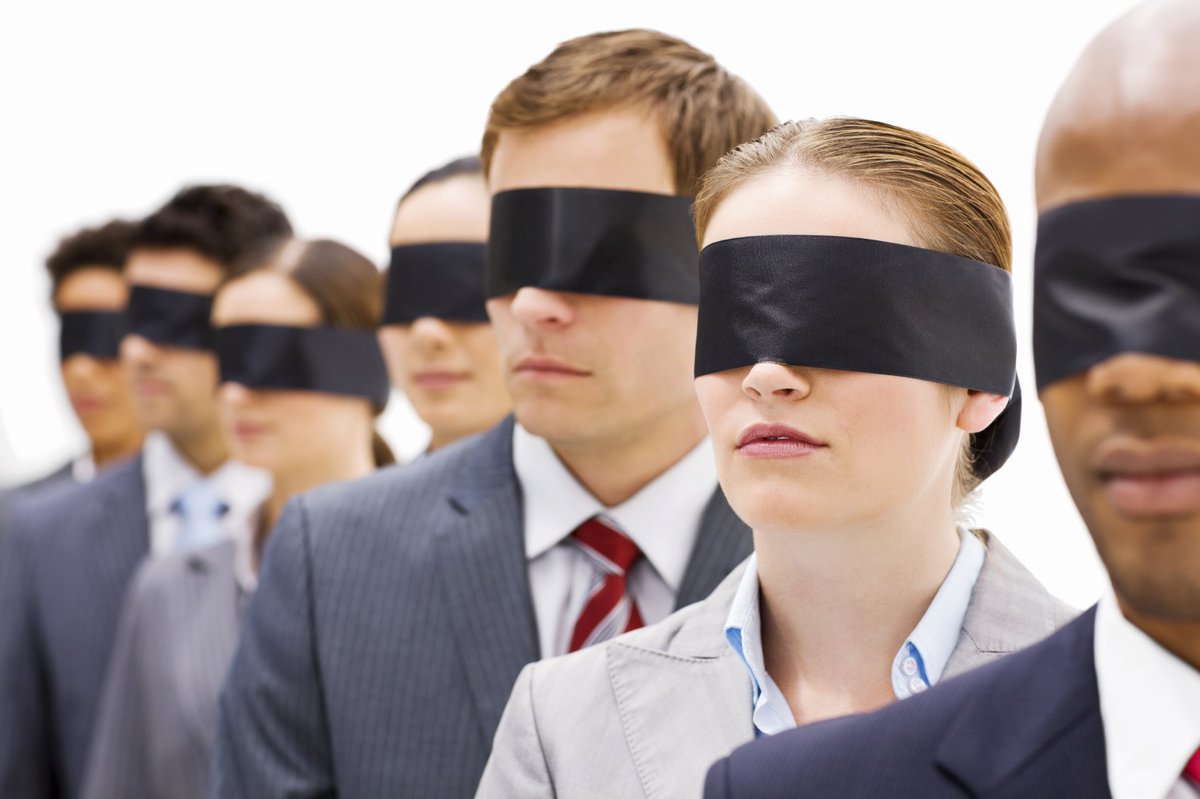
They make sure the consent forms exist.
They make sure there is evidence that the measurements were done.
But they don't supervise remeasure/remove/reclassify.
We are free to do that ourselves.
I am chasing a well-known journal that has been a bit slow on pulling the plug on a trial that I consider to be fictional.
The results make me happy, but they are not true, so it is my duty to get it de-published if I can.
Enjoy your Sunday, friends!

